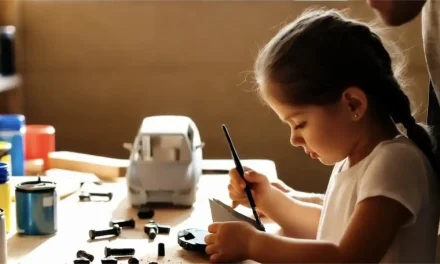
Thinking Critically: Seek True Facts
I
n an age of constant information, children need more than opinions—they need anchors. Teaching them to seek true facts means guiding them to look past noise and novelty, and toward sources that hold up under scrutiny. Truth isn’t always easy to spot, and sometimes it isn’t flashy. But the habit of checking, comparing, and asking, “Where did this come from?” lays the groundwork for a lifetime of clear thinking.
One evening, my son told me that humans only use 10% of their brains. I asked where he’d heard it. He wasn’t sure—maybe a show, maybe a friend. Together, we looked it up and found neuroscientists dismantling the myth. He laughed at how easily he’d believed it—and then asked if there were other “facts” he should double-check. That moment didn’t just correct a mistake—it built a habit of digging deeper.
Help your child get comfortable questioning claims, especially the ones that sound too perfect or are repeated without source. Show them how to check where a statement comes from, or how two articles can tell different stories. Make research part of daily life—whether it’s checking a science fact or a bit of history. Over time, they’ll learn that truth isn’t just handed to them—it’s something worth working for.
Thinking Critically

Thinking Critically: Prove with Proof
Encourage children to look for evidence behind claims. This strengthens reasoning, independence, and thoughtful judgment.

Thinking Critically: Weigh All Sides
Teach children to look at all sides of an issue before forming opinions. Balanced thinking encourages understanding and fairness.
Table of contents

Primordial Soup for the Mind: Navigation
Navigate the book Primordial Soup for the Mind.
TIPS
- Ask, “Where did you hear that?” to open conversations about sources.
- Teach your child how to compare information from multiple places.
- Show that it’s okay to revise an idea when new facts emerge.
ACTIVITIES
- Fact Check Together: When a bold claim comes up (online, at school, or at home), look it up together and talk through the findings.
- Two Sources Game: Pick a simple topic and compare how two websites or books describe it. Ask, “What’s different? What’s the same?”
EXAMPLE
My son repeated the myth that we use only 10% of our brains. We looked it up together and found real science. Now he’s the first to ask, “Is that true?” before passing things on.

Download “Primordial Soup for the Mind: A Parent’s Guide to Nurturing Intellectual Growth”
Enter your information to get this article and hundreds more as part of the FREE book Primordial Soup for the Mind.
Share your thoughts with the Thought Academy community in the Comments section below.

Sharpen those skills!
Enter your information to get our FREE practice exercises so you can hone your critical thinking and reasoning skills!







0 Comments